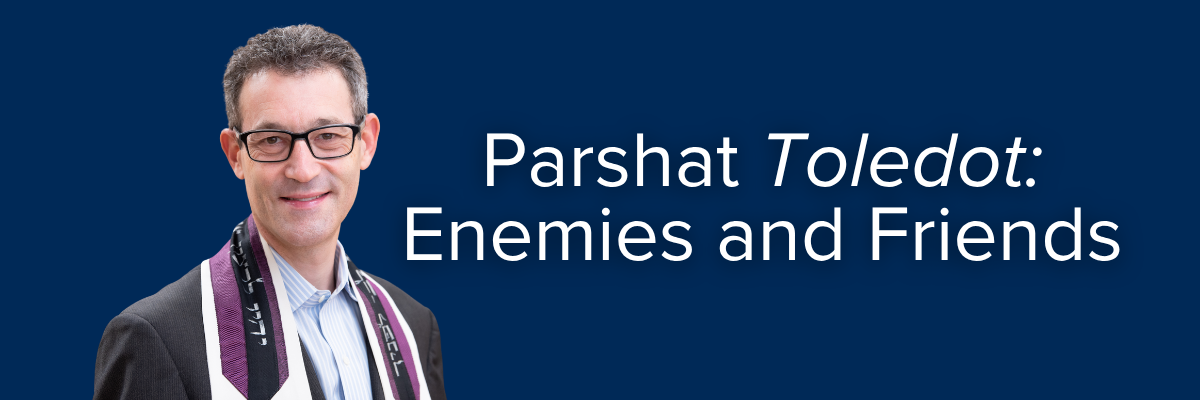Esau is one of our most complex and interesting biblical personalities – is he a hero or a villain? In the story, we hear of him struggling with his twin brother Jacob in Rebecca’s womb. He becomes the elder son and is therefore due the birthright and blessing of the firstborn. Despite this, however, God foretells Rebecca that he will serve Jacob, the younger. Jacob then steals away both birthright and blessing. Esau is a strong and passionate man, who God says will “live by the sword.” In fact, Jacob runs away from home after stealing Esau’s blessing, afraid Esau will murder him. The decedents of Esau become Amalek, the Israelites’ perennial enemy, whose memory we are commanded to blot out.
Throughout the midrash and rabbinical commentary, Esau is portrayed as a demon. Our sages call him rude, disrespectful and violent, and they even suggest that he smells like Gehenna (which is the closest Judaism gets to Hell). The traditional commentators have a vested interest in painting Esau this way, in order to justify Jacob’s deceit. Yet, when we go back to the biblical text itself, in particular the story in which Esau hears from Isaac that his blessing has been given away, our sympathies are with Esau. He cries, wails, and begs: “Bless me, too, father… Have you not reserved a blessing for me?” Even more moving is the scene we will read later on, in which Esau, now in possession of an army of 400 men with which he could easily kill Jacob, forgives and embraces him after 20 years of estrangement.
The story of Esau teaches us how easy it is to paint our adversaries with broad strokes, telling and retelling our subjective accounts. Further, it hints at how close our enemies may be to becoming our friends. It shows what can happen if, like Jacob and Esau, we are able to transcend the distances we create between ourselves and others – when we go back to the core of our relationships, as brothers, sisters, family, friends, partners, or simply as human beings.
Shabbat Shalom,
Rabbi Jeff Saxe


